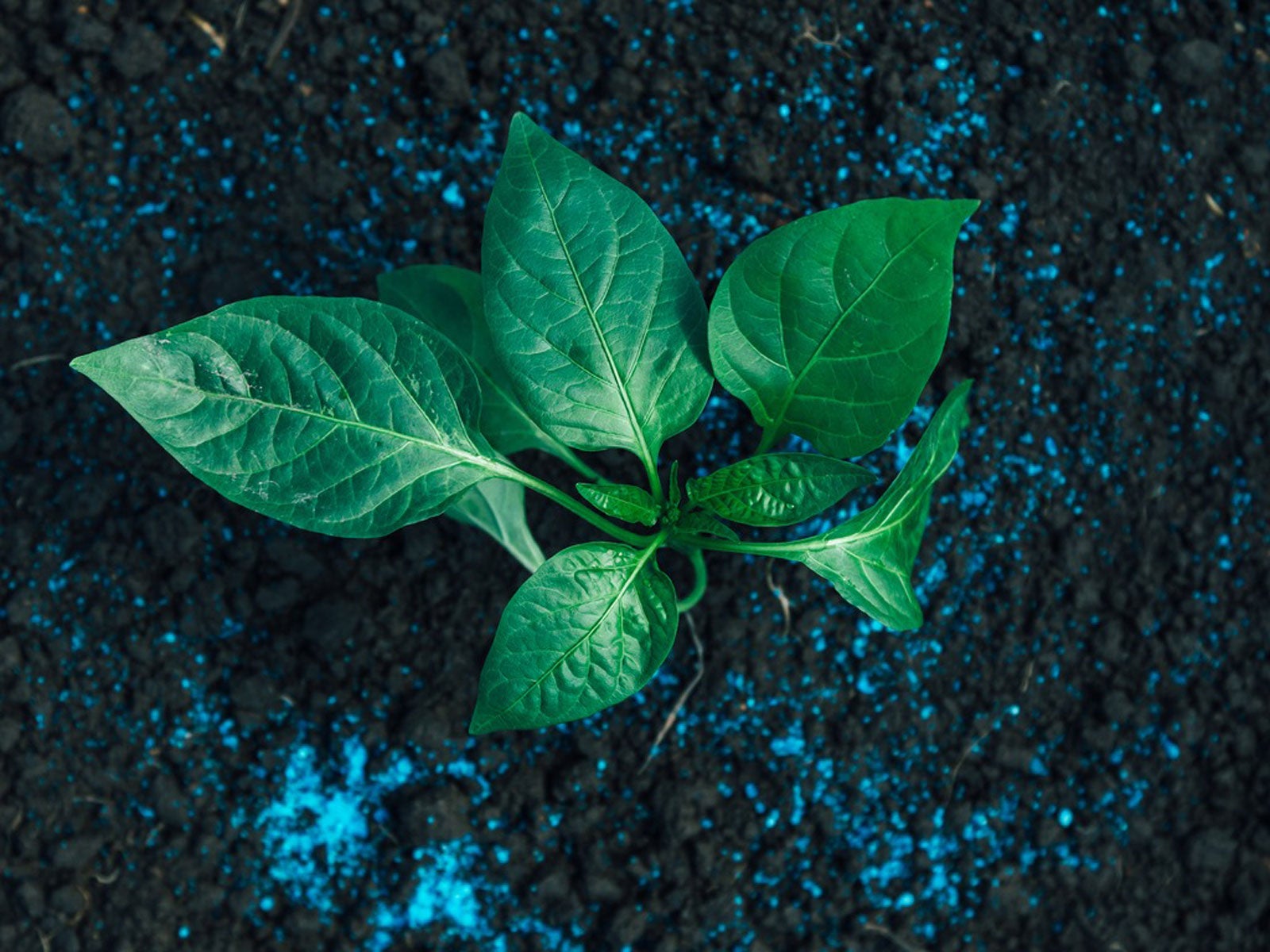Reveal the Best Fertilizers for Peppers: Essential Nutrients for Thriving Plants
Organic Vs. Synthetic Fertilizers: Which Is Best for Nurturing Healthy And Balanced Pepper Plants?
In the world of supporting healthy pepper plants, the selection in between organic and artificial plant foods stands as a pivotal decision with significant ramifications. While both options objective to give vital nutrients to sustain plant growth, the subtleties of their effect on the dirt, plant health and wellness, and the atmosphere spark an argument that mirrors throughout the horticulture area. Comprehending the distinct benefits and prospective mistakes of each plant food type is critical for pepper cultivators seeking to maximize their yields while keeping an eco-conscious and sustainable strategy.
Benefits of Organic Plant Foods
Organic plant foods provide a sustainable and environmentally-friendly method to nourishing pepper plants, giving necessary nutrients without using synthetic chemicals. These all-natural plant foods are stemmed from natural resources such as garden compost, manure, bone meal, and algae, advertising soil health and wellness and biodiversity. Unlike synthetic fertilizers, natural alternatives release nutrients gradually, ensuring a steady and well balanced supply for pepper plants to prosper.
One considerable benefit of natural fertilizers is their ability to boost soil structure and water retention. By boosting dirt health and wellness, organic fertilizers advertise valuable microbial task, which aids in nutrient uptake by pepper plants. Furthermore, natural plant foods decrease the threat of chemical run-off, safeguarding water resources from contamination and protecting the setting.
In addition, organic fertilizers add to lasting soil fertility by promoting the growth of useful dirt microorganisms. These organisms aid damage down organic issue, releasing nutrients in a form that is quickly obtainable to pepper plants. best fertilizers for peppers. By fostering a healthy and balanced soil ecological community, organic plant foods sustain lasting pepper growing practices that benefit both plants and the setting
Disadvantages of Synthetic Plant Foods
Synthetic fertilizers, in contrast to their organic counterparts, position various downsides when utilized to nourish pepper plants, influencing both plant health and wellness and ecological sustainability. One significant downside of artificial plant foods is their propensity to leach nutrients from the soil quickly.
Furthermore, the overuse of synthetic plant foods can contribute to water contamination. Excess fertilizers not absorbed by plants can remove right into water bodies, leading to eutrophication, where algae flowers diminish oxygen levels in the water, damaging marine life. Artificial fertilizers are commonly obtained from non-renewable resources, such as fossil gas, contributing to carbon discharges and environmental destruction during their manufacturing.
Nutrient Absorption Contrast
When comparing artificial and organic plant foods in terms of nutrient absorption, organic plant foods have the advantage of giving an extra well balanced and slow-release source of nutrients. Organic fertilizers contain a range of macro and micronutrients that are not just beneficial for the plants yet additionally promote healthy and balanced why not find out more dirt microbial task, which aids in nutrient uptake.
Moreover, natural fertilizers improve dirt framework and water retention capacity, permitting pepper plants to access nutrients extra efficiently. This enhanced dirt top quality facilitates root advancement, enabling much better nutrient absorption. Synthetic plant foods, although initially increasing plant growth as a result of their high nutrient focus, might hinder lasting nutrient absorption by derogatory dirt wellness with time.
Ecological Influence Considerations

On the other hand, synthetic plant foods, although frequently more quickly offered and focused to plants, can have damaging impacts on the setting if not applied effectively (best fertilizers for peppers). find more information Their production calls for high energy inputs, bring about greenhouse gas discharges and adding to environment modification. In addition, the runoff of excess synthetic fertilizers can pollute water resources, leading to eutrophication and hurting water ecosystems.
Finest Fertilizer Practices for Peppers
When feeding pepper plants, optimizing nutrient uptake and lessening ecological effect are essential factors to consider. To achieve this, it is important to comply with ideal fertilizer methods tailored to the certain needs of pepper plants. One vital technique is to carry out a dirt examination before using any fertilizers. This examination can identify the pH level of the dirt this article and determine any kind of nutrient deficiencies, leading you in choosing one of the most appropriate plant food formula.
One more essential technique is to fertilize pepper plants at the correct time. Normally, peppers gain from receiving fertilizer at growing and afterwards once more when they begin to flower. Over-fertilizing can result in vitamins and mineral imbalances and harm the plants, so it is important to comply with suggested application prices.
Additionally, picking a well balanced plant food with an NPK proportion that fits pepper plants' needs is essential. Eventually, integrating natural and artificial plant foods deliberately can help nurture healthy pepper plants while reducing environmental influence.
Conclusion

Organic fertilizers supply a sustainable and environmentally-friendly approach to beneficial pepper plants, providing necessary nutrients without the usage of synthetic chemicals. Unlike artificial fertilizers, organic alternatives release nutrients slowly, making certain a balanced and stable supply for pepper plants to grow.
Synthetic plant foods, in comparison to their organic counterparts, posture various drawbacks when made use of to nurture pepper plants, affecting both plant health and ecological sustainability. When contrasting artificial and natural plant foods in terms of nutrient absorption, organic fertilizers have the benefit of giving a much more balanced and slow-release source of nutrients.Furthermore, organic fertilizers improve soil framework and water retention ability, enabling pepper plants to accessibility nutrients more successfully.